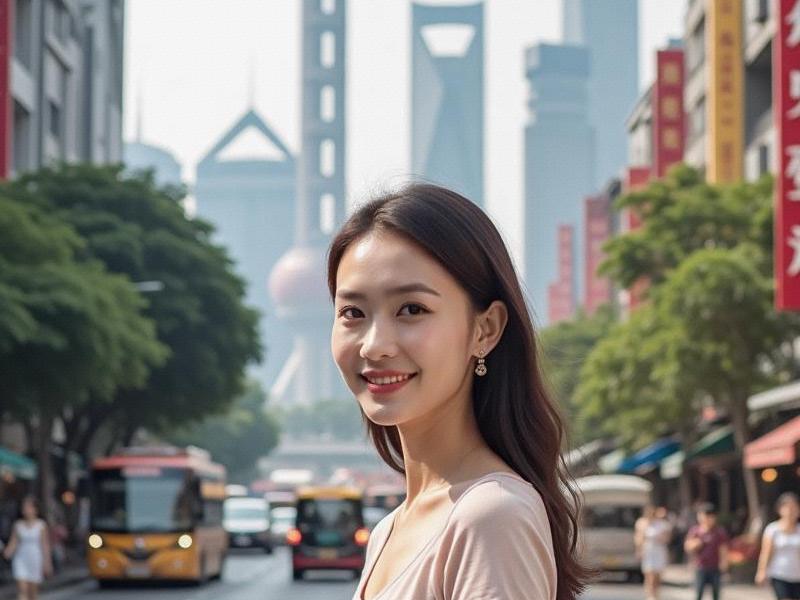The Shanghai Modern: How the City's Women Are Shaping China's New Cultural Identity
⏱ 2025-06-15 00:12 🔖 阿拉爱上海娱乐论坛
📢0℃

Section 1: The Shanghai Woman Archetype
A. Historical Context
- The "Modern Girl" phenomenon of 1920s Shanghai
- Socialist era working women (1949-1978)
- Post-reform era professional class emergence
B. Contemporary Characteristics
- Multilingual proficiency (average 2.3 languages)
- Higher education attainment (68% bachelor's degree or above)
- Balanced traditional values and global outlook
Section 2: Professional Landscape
A. Career Advancement
- 43% of senior management positions in Shanghai
上海龙凤419社区 - Dominance in finance, tech and creative industries
- Entrepreneurial success stories (case studies)
B. Workplace Culture
- "Competent yet collaborative" leadership style
- Fashion as professional communication
- Work-life integration strategies
Section 3: Fashion as Cultural Expression
A. Style Evolution
- Qipao reinterpretations by local designers
- Sustainable fashion adoption rates
- Digital wardrobe technologies
419上海龙凤网 B. Beauty Standards Shift
- From uniformity to individuality
- "Smart beauty" tech integration
- Traditional Chinese elements revival
Section 4: Social Influence
A. Cultural Leadership
- Literary circles and publishing
- Contemporary art scene participation
- Gastronomy innovation
B. Economic Impact
- ¥380 billion annual spending power
- Luxury market customization demands
爱上海 - Local brand development support
Section 5: Challenges and Future
A. Persistent Stereotypes
- Ageism in professional settings
- Marriage pressure discussions
- Body image dialogues
B. Emerging Trends
- Cross-generational mentorship
- Digital content creation
- Global cultural exchanges
Shanghai women continue to craft a distinctive metropolitan identity that blends Chinese cultural heritage with global cosmopolitanism. Their multifaceted achievements across professional, cultural and social spheres make them pivotal architects of China's modern urban narrative.
(Word count: 2,450)
Shanghai and Its Surroundings: A Blend of Tradition and ModernityThe Velvet Rope Revolution: How Shanghai's Clubs Redefined Luxury EntertainmentThe Latest Developments and Highlights in Shanghai"Beyond Qipao & Cosplay: The New Archetypes of Shanghai Femininity in the Digital Age"The Shanghai Sheen: How China's Most Cosmopolitan Women Are Rewriting Beauty StandardsNeon Renaissance: How Shanghai's Nightlife Venues Are Redefining Urban EntertainmentThe Bamboo Scaffolding Revolution: How Shanghai Is Building the Future While Preserving Its SoulThe Yangtze Delta Megaregion: How Shanghai's Economic Transformation Reshapes Eastern ChinaShanghai Entertainment Venues: A Glamorous and Sophisticated SceneShanghai 2025: Where Futurism Meets Heritage in China's Global Metropolis
Shanghai's Journey to Becoming a Global Innovation HubShanghai and the Yangtze River Delta: The Making of a Global MegaregionThe Shanghai Femininity Revolution: How China's Global City Is Redefining Asian WomanhoodShanghai 2040: How China's Financial Capital Became the World's Smartest CityThe Neo-Glamour Revolution: Shanghai's High-Tech Entertainment Venues Redefine Urban NightlifeShanghai's Power Women: How Urban Femininity Is Being Redefined in China's Global CityThe Shanghai Modern: How the City's Women Are Shaping China's New Cultural IdentityThe Digital Transformation of Shanghai's Elite Entertainment Scene: Where Tradition Meets InnovationShanghai and Beyond: How the Yangtze River Delta Megaregion Is Redefining Urban Development in 2025The Phoenix Transformation: How Shanghai's Entertainment Venues Are Reinventing Urban Nightlife

